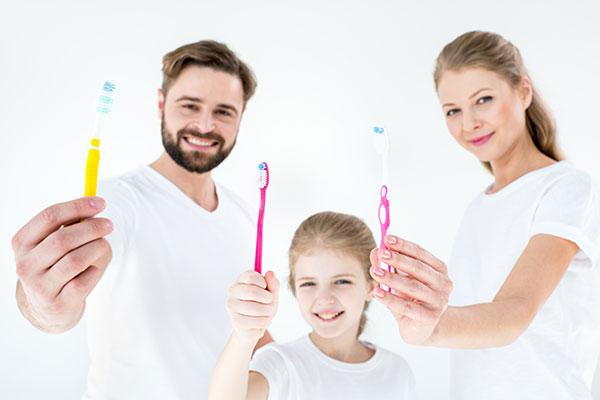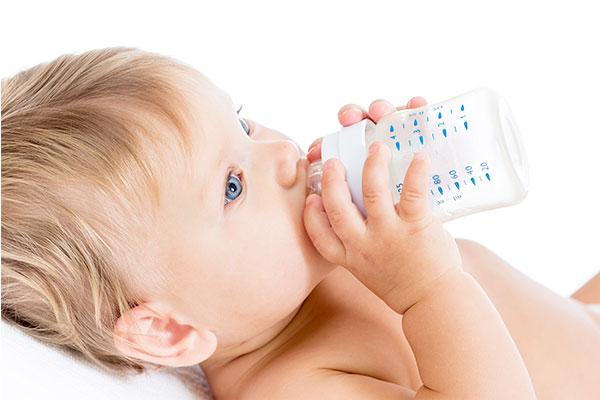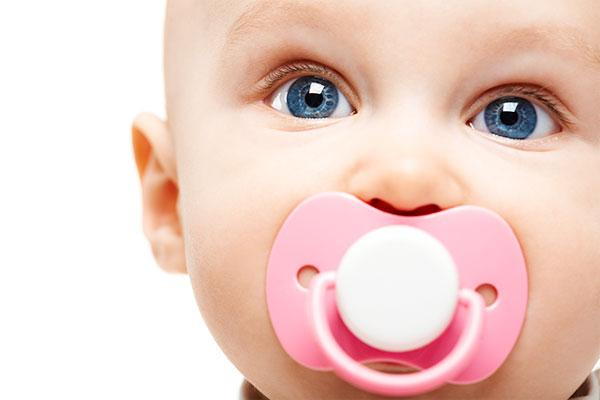Proper oral care to maintain a healthy mouth should start right from birth. Even though the primary teeth will eventually be lost, they are very important for eating, proper speech development and for holding the spaces where the permanent teeth will erupt.
The Canadian Dental Association has recommended that there be an assessment of infants, by a dentist, within six months of the eruption of the first tooth or by one year of age.

The First Dental Visit
Introducing children to the dental office environment from a young age helps to prevent the dental anxiety that many adults deal with in the present day. Their first visit(s) should be very positive and fun, allowing the child to get comfortable with the environment and staff and start their lifelong commitment to caring about their oral and overall health.
Many times, the first visit may just be a "ride in the chair," a new toothbrush and reviewing oral hygiene practices with parents.
Children's primary teeth are susceptible to any of the issues that can affect adult teeth. This includes cavities, plaque and tartar build-up and gum inflammation. It is important to monitor the development of their primary teeth and catch any potential problems early.
Caring for Your Child's Teeth
Primary teeth usually begin to develop around six months of age, and a child should have their full set of 20 primary teeth by age three. Tooth eruption times vary from child to child and is usually not a cause for concern if your child is early or late in their development.
Even before they get their first tooth, you can begin to clean your baby's gums daily with a wet washcloth. When your child begins to develop teeth, you can start using an age-appropriate toothbrush moistened with water to clean their teeth. Usually, you would begin to start using fluoridated toothpaste to brush your child's teeth when they can effectively spit the toothpaste out. If there is a high risk of cavities, your dental professional may recommend starting using a grain of rice size amount of fluoridated toothpaste earlier than that.
Children will need daily assistance from an adult to properly brush and floss their teeth. As a general rule, children will not have the dexterity needed to brush on their own until they have the dexterity and motor skills to properly write (not print) their name. Before that, their brushing and flossing should be monitored and assisted by an adult.
Brushing should be done at least twice a day for two minutes each time. It is very important for children to brush their teeth before bed. Flossing should be done daily, especially between their primary molars where cavities often form. If having difficulty using string floss, floss piks may be easier to use. Fluoridated mouthrinses are available for children and may be recommended, depending on their cavity risk and ability to rinse without swallowing.

Nutrition and Risk of Cavities
Breast milk, formula, and cow's milk all contain sugars, that if left on your child's teeth, can lead to decay. If you put your child to sleep with a bottle of any milk, the sugars in the milk will be left on your child's teeth for a long time. Try filling the bottle with water instead. If your child falls asleep with milk in their mouth, try to clean it out as best you can.
When possible, choose healthy snacks such as fruit, vegetables, cheese, and nuts. If you are giving your child a sweet treat, try to serve it at meal time. Having frequent sugary snacks during the day puts children at a higher risk of cavities. Be wary of food that sticks to teeth and could be in contact with their teeth for a long time. Examples of sticky foods would be candies, granola bars, crackers, chips and dried fruit snacks such as raisins. If having those things, try to clean their teeth afterward if possible.
What is Fluoride
Fluoride is a mineral that strengthens enamel and makes teeth more resistant to cavities. Fluoride may be found in some community water systems, toothpaste, and mouthrinses. Dental professionals may also provide fluoride treatments as part of the dental visit.
If children are swallowing excessive amounts of fluoridated products while their teeth are still developing, this puts them at risk for dental fluorosis. Mild dental fluorosis may just appear as white flecks on the teeth while more severe fluorosis could have white or brown discolorations and possible pitting of the enamel. Monitoring your child while brushing and using an appropriate amount of toothpaste will prevent this issue.
Pacifiers and Thumb Sucking
These behaviors are common among children because they help the child soothe and calm themselves. Unless the child continues these habits after the permanent teeth erupt, they usually don't cause any dental issues. If continued when permanent teeth are in the mouth, it may affect the alignment of their teeth. Never dip your child's pacifier in any sweeteners and don't "clean" your child's pacifier in your mouth as this can lead to the passing of harmful cavity-causing bacteria to your child.

Make it Fun
At times, children may not be cooperative during their oral care routines. Even though it may be difficult, daily oral care is essential for your child's teeth and development. Your child may enjoy picking out their toothbrush and toothpaste. There are many fun brushes on the market that light up, play music or feature a character that they like. Using a timer or a listening to a song can help make sure toothbrush time is lasting for at least 2 minutes. Sticker charts can be fun and motivating. Having your child watch, you care for your teeth sets a good example for them. Overall, try to make it a positive and fun experience and an important part of their daily routine.
